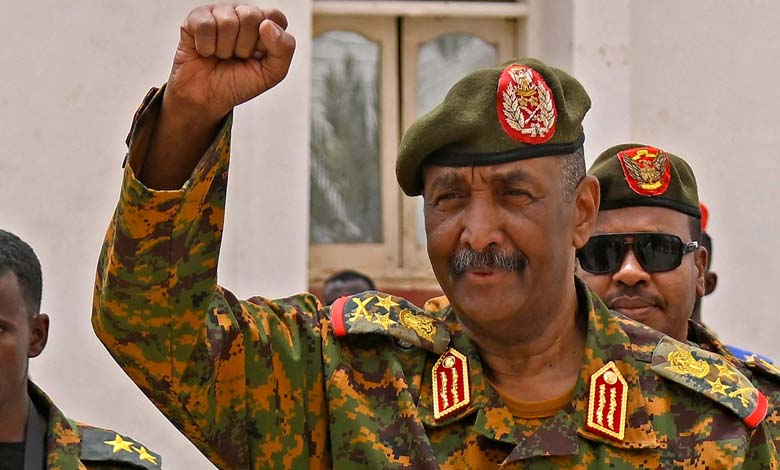Washington Pressures Al-Burhan by Insisting on Geneva Talks as a New Model for Peace
The United States stresses the need to open humanitarian corridors to deliver aid to 20 million Sudanese.

The United States has described the ongoing negotiations in Geneva, Switzerland, aimed at ending the war in Sudan as a “new model” and has expressed its intention to build upon them. This stance will increase pressure on Sudanese army leader Abdel Fattah al-Burhan, who has refused to participate in the talks, further deepening his isolation.
-
From Cairo to New York: Intensive Political Moves to Resolve the Sudanese Crisis
-
After Dagalo’s appearance… Political Analyst: the sudanese crisis continues, and its impact on the people will be significant
During a press conference in Geneva on Monday, U.S. envoy to Sudan Tom Perriello stated that they remain focused on the Sudanese crisis during the negotiations, which have not been attended by any government representatives.
“We continue to work with our international partners, including the United Nations, Switzerland, Saudi Arabia, Egypt, the United Arab Emirates, and the African Union,” he said.
-
To ignite chaos… Terrorist arms of the Muslim Brotherhood fuel the Sudanese crisis
-
The Sudanese crisis continues.. What are the proposed solutions in the current period?
He added that they aim to “resolve the issues affecting more than 20 million Sudanese who are facing famine and severe food shortages.” He also noted that the parties are focusing on issues related to humanitarian aid, civilian protection, and ending the clashes, in line with their commitments under the Jeddah Declaration.
Perriello highlighted the focus on opening the necessary “humanitarian corridors” to deliver aid to 20 million Sudanese “currently largely deprived of food and medicine.”
-
Forced Return – A major crisis facing Sudanese refugees and those fleeing from war in Eritrea
-
Battle for the Blue Nile Region to Determine the Course of the Sudanese War
He also mentioned that they are continuing face-to-face discussions with the Rapid Support Forces delegation and holding virtual meetings with army representatives, confirming that negotiations will continue this week to “achieve meaningful results for the Sudanese.”
Perriello described the talks in Geneva as a “new model” for Sudanese negotiations, adding: “We want to continue building on this.” He emphasized that U.S. President Joe Biden and Secretary of State Antony Blinken support this path. He also noted that they have seen “positive steps” from both the army and the Rapid Support Forces.
-
Somalia-Ethiopia Conflict: Turkey Steps into the ‘Port Crisis’
-
“Taqaddum” Prepares to Participate in Sudanese Forces Conference in Cairo
Earlier on Monday, international participants in the Geneva talks, along with the United Nations, urged the warring parties to protect civilians and aid workers while respecting international humanitarian law.
Without government representation, talks on Sudan began in Geneva on Wednesday, in response to a U.S. invitation issued on July 23.
Before engaging in new negotiations to end the war, the Sudanese government insists on implementing the “Jeddah Declaration,” which was issued in May 2023 at the conclusion of talks hosted in Jeddah, Saudi Arabia, between the army and the Rapid Support Forces.
-
Iranian delegation provides advanced military training to Sudanese Army: A controversial security cooperation
-
Arrests, Assassinations, and Sexual Assaults… Sudanese Journalists in the “Army’s” Hell
This declaration stipulated that both parties must commit to “refraining from any military attack that could harm civilians,” “ensuring the protection of civilians,” and “respecting international humanitarian and human rights law.”
Last week, Al-Burhan sent a delegation to Egypt to discuss the “implementation of the Jeddah Agreement” regarding the mitigation of the ongoing war’s impact with the Rapid Support Forces, which has been raging for 16 months.
The war between the Sudanese army and the Rapid Support Forces broke out in mid-April 2023, resulting in about 18,800 deaths and nearly 10 million displaced persons and refugees, according to the United Nations.
International and UN calls for ending the war are intensifying, aiming to prevent a humanitarian catastrophe that is pushing millions of Sudanese toward famine and death due to food shortages caused by the fighting, which has spread to 13 out of the country’s 18 states.












